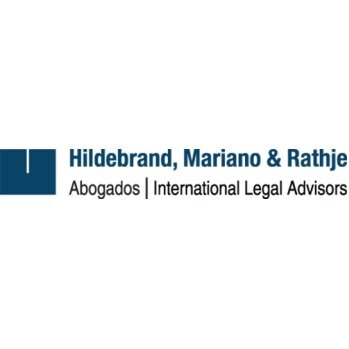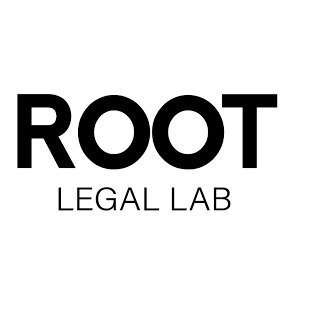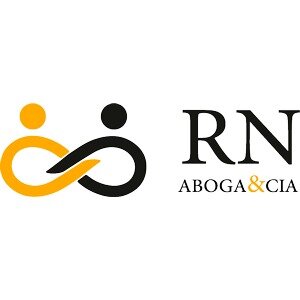Best Private Equity Lawyers in Seville
Share your needs with us, get contacted by law firms.
Free. Takes 2 min.
List of the best lawyers in Seville, Spain
About Private Equity Law in Seville, Spain
Private equity refers to investment in private companies that are not listed on a public stock exchange. In Seville, Spain, this sector has grown as the city becomes an increasingly attractive location for investors and entrepreneurs. Private equity law encompasses the legal frameworks governing investments, acquisitions, shares, management participation, and exit strategies within private companies. Lawyers specializing in this area help navigate complex transactions, regulatory requirements, and ensure proper structuring for both local and international stakeholders.
Why You May Need a Lawyer
There are many situations where individuals or businesses in Seville may require legal help regarding private equity. If you are considering investing in a private company, raising funds for your existing business, or entering into a partnership, the guidance of a legal expert is crucial. A lawyer can help with drafting and reviewing investment agreements, conducting due diligence, negotiating terms, ensuring compliance with regulatory obligations, and safeguarding your interests in case of disputes. Legal advice can also be vital during the structuring and execution of mergers and acquisitions, minority shareholding protection, and exit events.
Local Laws Overview
Private equity activities in Seville are primarily regulated by Spanish national laws, including the Companies Act (Ley de Sociedades de Capital), Securities Market Law, and specific regulations applicable to private equity firms (known locally as sociedades de capital riesgo). Key areas include:
- Investment fund registration and oversight by the Comisión Nacional del Mercado de Valores (CNMV)
- Restrictions on share transfers and shareholders' agreements
- Anti-money laundering compliance
- Corporate governance requirements
- Tax considerations for both resident and non-resident investors
- Notification and approval processes for significant company acquisitions
Additionally, local factors such as regional incentives, economic development programs, and collaboration with Andalusian business associations may influence private equity transactions in Seville.
Frequently Asked Questions
What is private equity and how does it work in Seville?
Private equity involves investments in privately held companies, often with the aim of increasing value before exiting through a sale or public offering. In Seville, this typically includes venture capital for startups or buyouts of established businesses.
Do I need legal assistance to invest in or raise private equity?
Yes, legal support is highly recommended to review contracts, assess risks, ensure compliance, and help with negotiations. Lawyers can also help protect your financial and strategic interests.
What are the main regulatory bodies involved?
The Comisión Nacional del Mercado de Valores (CNMV) is the main regulator of private equity activities, alongside tax authorities and the Spanish Ministry of Economy.
Are there specific rules for foreign investors in Seville?
Foreign investors face some reporting and regulatory requirements, especially for significant investments or sensitive industries. A lawyer can advise on any limitations or necessary approvals.
What is due diligence and why is it important?
Due diligence is the process of investigating a company’s legal, financial, and operational standing before making an investment. It helps uncover risks, liabilities, and ensures informed decision making.
How are private equity funds structured?
Private equity funds are usually set up as limited partnerships or similar structures, allowing investors to pool capital while limiting liability. Spanish law provides specific frameworks for these entities.
What tax issues should I consider?
Spain has detailed tax rules for investment returns, capital gains, and profit repatriation. Tax efficiency can be achieved through careful planning and compliance with both national and Andalusian regulations.
How can I protect my rights as a minority shareholder?
Shareholders' agreements, tag-along and drag-along rights, and clear governance structures can help protect minority interests. These should be carefully drafted with legal assistance.
What happens if a dispute arises in a private equity transaction?
Disputes are typically resolved through negotiation or arbitration clauses in contracts. If necessary, litigation in Spanish courts is an option, though it can be time-consuming and costly.
How do I exit from a private equity investment?
Exits can occur through company sales, initial public offerings, or secondary transactions. Planning and agreement terms set at the entry stage can significantly impact exit options and returns.
Additional Resources
For individuals seeking more information or support in the field of private equity in Seville, the following resources may be valuable:
- Comisión Nacional del Mercado de Valores (CNMV) - Spain’s main financial market regulator
- Invest in Andalucía - Regional investment promotion agency
- Andalusian Council of Chambers of Commerce
- Spanish Private Equity & Venture Capital Association (ASCRI)
- Ministry of Economy and Digital Transformation (Ministerio de Asuntos Económicos y Transformación Digital)
- Local business incubators and innovation hubs
Next Steps
If you are considering a private equity investment or transaction in Seville, Spain, start by gathering all relevant information about your business or targeted investment. Make a list of your goals, concerns, and the key terms you expect in any deal. Contact a local lawyer or law firm with expertise in private equity to discuss your plans and review your documentation. A legal professional can guide you through the regulatory process, draft and negotiate contracts, and advise you on tax and compliance matters. Taking the right steps early on can protect your interests and ensure a successful private equity experience in Seville.
Lawzana helps you find the best lawyers and law firms in Seville through a curated and pre-screened list of qualified legal professionals. Our platform offers rankings and detailed profiles of attorneys and law firms, allowing you to compare based on practice areas, including Private Equity, experience, and client feedback.
Each profile includes a description of the firm's areas of practice, client reviews, team members and partners, year of establishment, spoken languages, office locations, contact information, social media presence, and any published articles or resources. Most firms on our platform speak English and are experienced in both local and international legal matters.
Get a quote from top-rated law firms in Seville, Spain — quickly, securely, and without unnecessary hassle.
Disclaimer:
The information provided on this page is for general informational purposes only and does not constitute legal advice. While we strive to ensure the accuracy and relevance of the content, legal information may change over time, and interpretations of the law can vary. You should always consult with a qualified legal professional for advice specific to your situation.
We disclaim all liability for actions taken or not taken based on the content of this page. If you believe any information is incorrect or outdated, please contact us, and we will review and update it where appropriate.

















